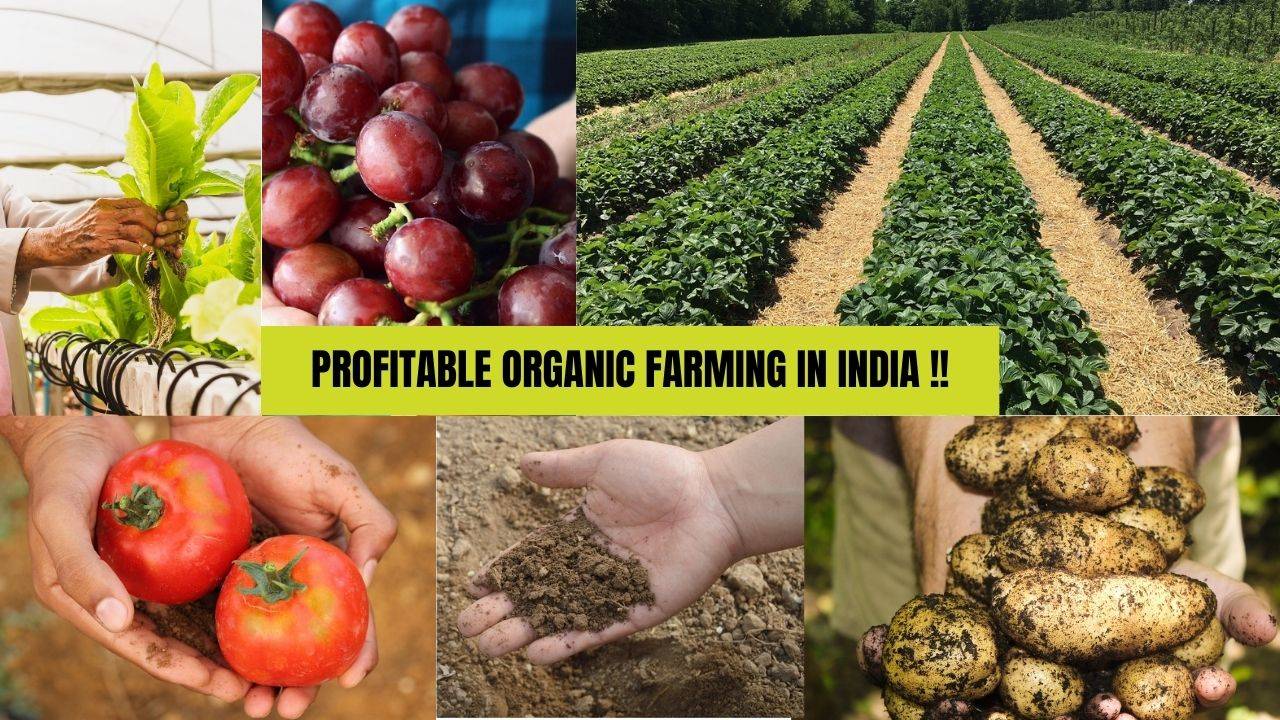
The profitability of organic farming in India is subject to numerous factors. These include location, crop variety, farm size, and market demand.
In general, organic farming tends to be more profitable than conventional methods in India due to the higher prices organic products can fetch in both domestic and export markets.
Additionally, it can lead to long-term cost savings by reducing the need for expensive chemical inputs.
However, transitioning from conventional to organic farming requires a significant initial investment, particularly in the first few years. During this period, yields may be lower because the soil needs time to regenerate.
Moreover, organic farming often demands more labour, which can increase operational costs.
To sum it up, the profitability of organic farming in India is influenced by a range of factors. Farmers should carefully consider these factors and develop a strategic approach to the market to ensure their success.
Organic Farming in India: Scope and Profit
Organic farming presents a profitable and sustainable approach to agriculture in India. This article outlines key strategies for farmers to enhance both yield and profit in organic farming.
-
Soil Health
Importance: Soil fertility directly impacts yield.
Strategy: Use organic amendments like compost and fertilizers to boost soil health.
-
Crop Selection
Importance: Select crops suitable for local conditions and market demand.
Strategy: Choose disease-resistant varieties with high yields.
-
Crop Rotation
Importance: Enhances soil health and reduces pests and diseases.
Strategy: Plan crop rotation carefully for maximum yield and soil health.
-
Natural Pest Management
Importance: Organic farming relies on natural pest control techniques.
Strategy: Implement crop rotation, intercropping, and beneficial insects to manage pests.
-
Irrigation
Importance: Proper irrigation is essential for organic farming success.
Strategy: Use water-efficient techniques to maintain soil moisture.
-
Weed Management
Importance: Weeds compete with crops for nutrients.
Strategy: Employ methods like mulching, hand-weeding, and crop rotation for weed control.
-
Organic Certification
Importance: Certification can lead to higher product prices.
Strategy: Seek organic certification to increase profits.
Organic Farming: Here's How to Enhance Profit
-
Market Research
Importance: Understanding market demand and trends is crucial.
Strategy: Conduct research to identify potential buyers and tailor farming decisions accordingly.
-
Value Addition
Importance: Processing products into value-added goods can increase their value.
Strategy: Consider making pickles, jams, or sauces from farm produce.
-
Direct Marketing
Importance: Eliminate middlemen to reduce marketing costs.
Strategy: Sell products directly to consumers via farmers’ markets, online platforms, or community-supported agriculture programs.
-
Bulk Selling
Importance: Bulk sales to organic stores or processors can be profitable.
Strategy: Explore bulk selling options to benefit from economies of scale.
-
Organic Certification
Importance: Certified organic products command premium prices.
Strategy: Obtain organic certification to maximize profits.
-
Cost Management
Importance: Efficient cost management is essential for profitability.
Strategy: Opt for locally available organic inputs and implement cost-saving measures.
-
Crop Diversification
Importance: Diversifying crops reduces risk and enhances profitability.
Strategy: Grow a variety of crops to spread risk and generate multiple revenue streams.
In summary, organic farming in India can be both profitable and sustainable. Success in organic farming hinges on factors such as soil quality, crop selection, pest management, and organic certification. Farmers should also employ strategies to enhance yield and profit, such as improving soil health, practicing natural pest management, and diversifying crops.
Additionally, conducting market research, adding value to products, and managing costs effectively are crucial steps towards increasing profits.
Ultimately, organic farming in India contributes to food security and sustainability goals while benefiting farmers economically, socially, and environmentally.









